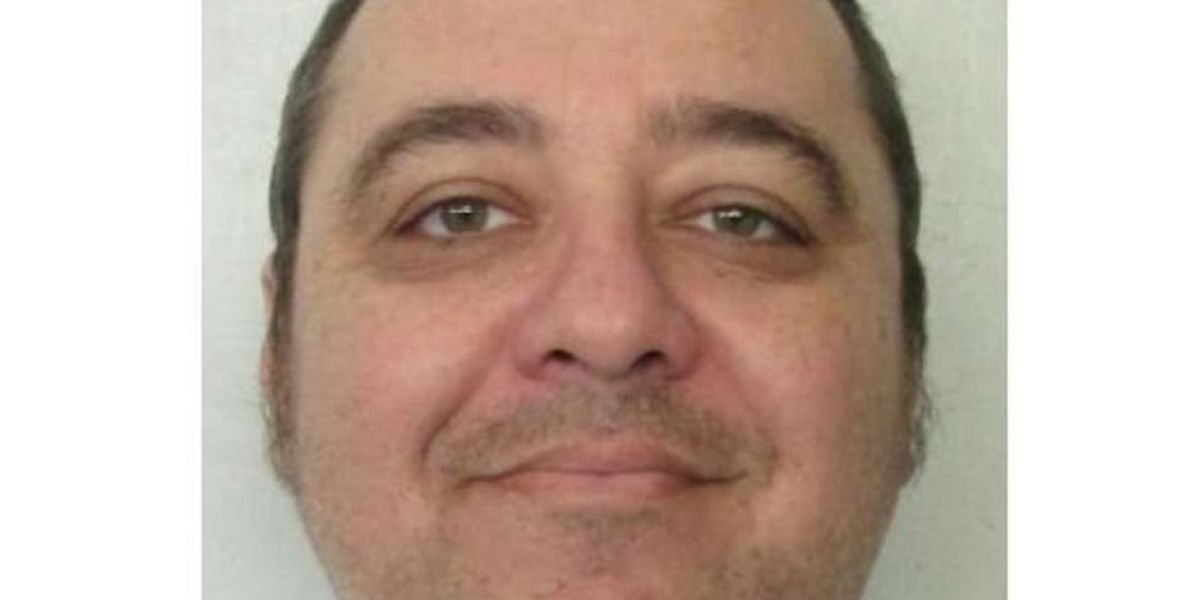Alabama is set to become the first state in the nation to execute an inmate using nitrogen gas after lethal injection could not be administered to the inmate last year.
Way back in 1988, Kenneth Eugene Smith, now 58, was hired alongside John Forest Parker to murder Elizabeth Sennett, the wife of a northern Alabama preacher, and make her death look like a robbery gone wrong. The woman’s husband, Charles Sennett Sr., had been having an affair and was also deep in debt.
Charles Sennett initially asked one man to commit the heinous crime, and that man then hired Smith and Parker. Smith and Parker then went to the woman’s home under the pretense of hunting on her property — Elizabeth called her husband and verified that the men had first gotten his permission — and after asking to use the couple’s bathroom, they fatally attacked Elizabeth. It is believed that she was beaten and stabbed in the neck. Smith and Parker each received between $900 and $1,000 for the deed.
Within days of Elizabeth Sennett’s violent death, Pastor Sennett took out a sizeable insurance policy on her. He then committed suicide after police zeroed in on him as a suspect in her death. Parker, Smith’s accomplice in the murder, was executed by lethal injection in 2010. It is unclear whether the fourth man involved in the murder-for-hire plot was ever charged.
In 1996, Smith was convicted of Elizabeth’s murder. The jury then voted 11-1 for life imprisonment, but the judge in the case overruled the jury and sentenced Smith to death.
That sentence was scheduled to be administered last November. On the date of his execution, Smith lay on the gurney, awaiting lethal injection. However, officials were unable to connect Smith to the two necessary intravenous lines before the deadline established by the courts had expired, and the Department of Corrections canceled the execution.
Alabama Attorney General Steve Marshall did not allow Smith’s case to slip through the cracks though, and his office filed motions back in August for a new execution date. Marshall recently claimed in a statement that Elizabeth Sennett’s family had “waited an unconscionable 35 years to see justice served.”
On Wednesday, Gov. Kay Ivey (R) announced that Smith’s execution had been rescheduled for sometime between Jan. 25 and 6 a.m. on Jan. 26, 2024. Her office also announced that Smith would be executed by a different method: nitrogen hypoxia.
While nitrogen constitutes 78% of the air humans normally breathe, that air is also mixed with oxygen. During a nitrogen hypoxia execution, a tube would be strapped to an inmate’s nose and mouth. At the start of the execution, the gas filtered through the tube would become nitrogen alone, no oxygen, causing the inmate to suffocate to death. The process is expected to take between five and 15 minutes, the state’s execution protocol said.
Ivey’s announcement added that Smith and his legal team had been the ones to offer nitrogen hypoxia “as an alternative to lethal injection,” but a lawsuit and recent statements from Smith’s attorneys seem to contradict that assertion. His attorneys have called nitrogen hypoxia “experimental,” claimed that its protocol “has never been fully disclosed to [Smith] or his counsel,” and insisted they do not want to turn Smith into a “test subject.”
“Like the eleven jurors who did not believe Mr. Smith should be executed, we remain hopeful that those who review this case will see that a second attempt to execute Mr. Smith … is unwarranted and unjust,” attorney Robert Grass wrote in a statement.
The state’s supreme court already ruled 6-2 earlier this month to approve the new execution method in Smith’s case. Gov. Ivey has the power to grant Smith clemency, but she has already stated that she does not intend to do so.
If Smith’s execution proceeds as scheduled, he will become the first person in U.S. history to be executed by nitrogen hypoxia. Mississippi and Oklahoma have also approved nitrogen hypoxia for state-sponsored executions but have not used it.
In 2017, the state of Alabama abolished judicial override in capital crime cases. However, as that new statute could not be applied retroactively, it did not affect Smith.
Like Blaze News? Bypass the censors, sign up for our newsletters, and get stories like this direct to your inbox. Sign up here!

